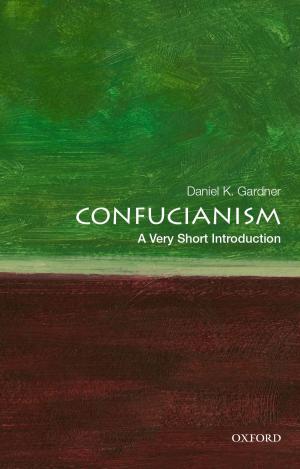How the Economy Works
Confidence, Crashes and Self-Fulfilling Prophecies
Business & Finance, Economics, Macroeconomics, Theory of Economics, Economic History| Author: | Roger E. A. Farmer | ISBN: | 9780199756377 |
| Publisher: | Oxford University Press | Publication: | April 8, 2010 |
| Imprint: | Oxford University Press | Language: | English |
| Author: | Roger E. A. Farmer |
| ISBN: | 9780199756377 |
| Publisher: | Oxford University Press |
| Publication: | April 8, 2010 |
| Imprint: | Oxford University Press |
| Language: | English |
"Of all the economic bubbles that have been pricked," the editors of The Economist recently observed, "few have burst more spectacularly than the reputation of economics itself." Indeed, the financial crisis that crested in 2008 destroyed the credibility of the economic thinking that had guided policymakers for a generation. But what will take its place? In How the Economy Works, one of our leading economists provides a jargon-free exploration of the current crisis, offering a powerful argument for how economics must change to get us out of it. Roger E. A. Farmer traces the swings between classical and Keynesian economics since the early twentieth century, gracefully explaining the elements of both theories. During the Great Depression, Keynes challenged the longstanding idea that an economy was a self-correcting mechanism; but his school gave way to a resurgence of classical economics in the 1970s-a rise that ended with the current crisis. Rather than simply allowing the pendulum to swing back, Farmer writes, we must synthesize the two. From classical economics, he takes the idea that a sound theory must explain how individuals behave-how our collective choices shape the economy. From Keynesian economics, he adopts the principle that markets do not always work well, that capitalism needs some guidance. The goal, he writes, is to correct the excesses of a free-market economy without stifling entrepreneurship and instituting central planning. Recent events have shown that we cannot afford to treat economics as an ivory-tower abstraction. It has a direct impact on our lives by guiding regulators and policymakers as they make decisions with far-reaching practical consequences. Written in clear, accessible language, How the Economy Works makes an argument that no one should ignore.
"Of all the economic bubbles that have been pricked," the editors of The Economist recently observed, "few have burst more spectacularly than the reputation of economics itself." Indeed, the financial crisis that crested in 2008 destroyed the credibility of the economic thinking that had guided policymakers for a generation. But what will take its place? In How the Economy Works, one of our leading economists provides a jargon-free exploration of the current crisis, offering a powerful argument for how economics must change to get us out of it. Roger E. A. Farmer traces the swings between classical and Keynesian economics since the early twentieth century, gracefully explaining the elements of both theories. During the Great Depression, Keynes challenged the longstanding idea that an economy was a self-correcting mechanism; but his school gave way to a resurgence of classical economics in the 1970s-a rise that ended with the current crisis. Rather than simply allowing the pendulum to swing back, Farmer writes, we must synthesize the two. From classical economics, he takes the idea that a sound theory must explain how individuals behave-how our collective choices shape the economy. From Keynesian economics, he adopts the principle that markets do not always work well, that capitalism needs some guidance. The goal, he writes, is to correct the excesses of a free-market economy without stifling entrepreneurship and instituting central planning. Recent events have shown that we cannot afford to treat economics as an ivory-tower abstraction. It has a direct impact on our lives by guiding regulators and policymakers as they make decisions with far-reaching practical consequences. Written in clear, accessible language, How the Economy Works makes an argument that no one should ignore.















